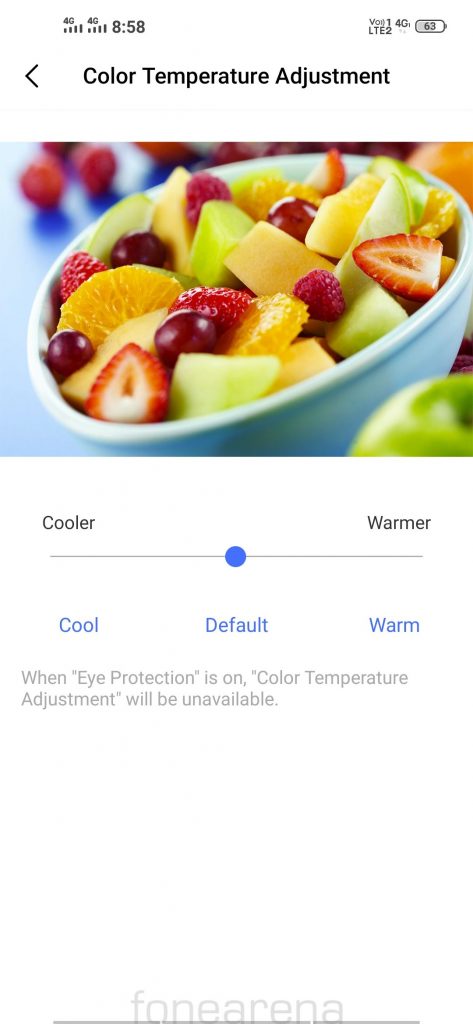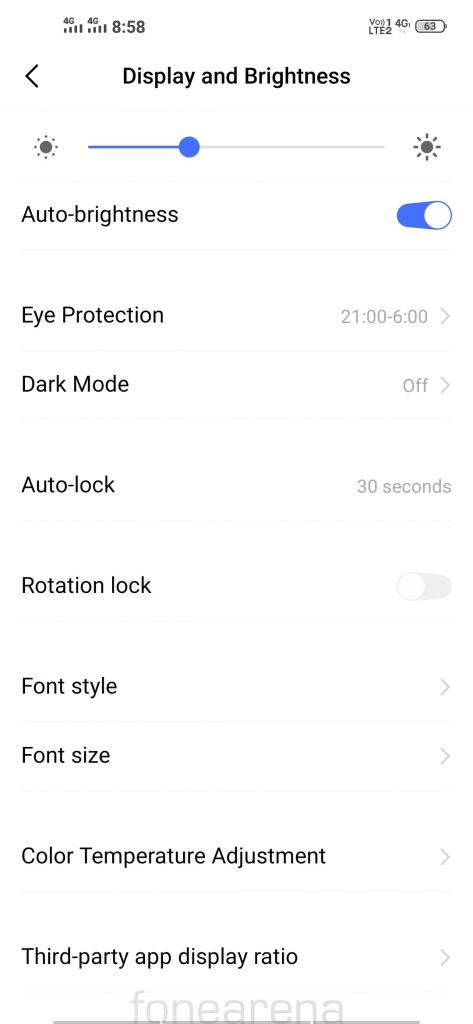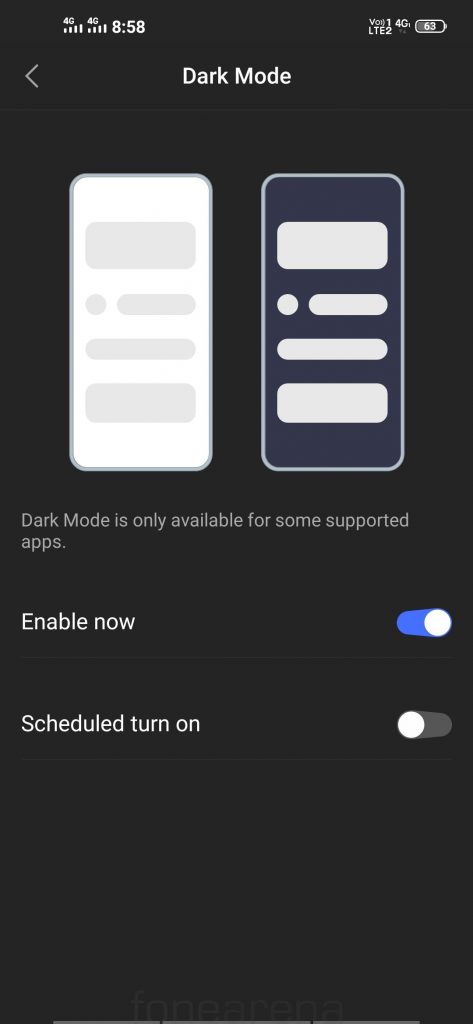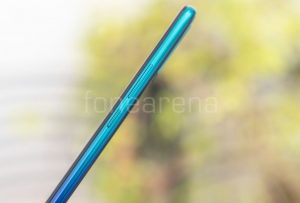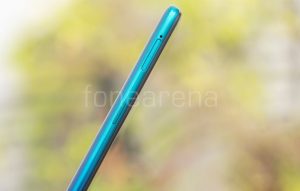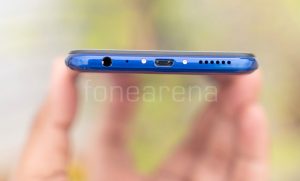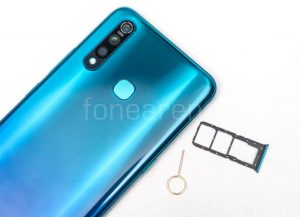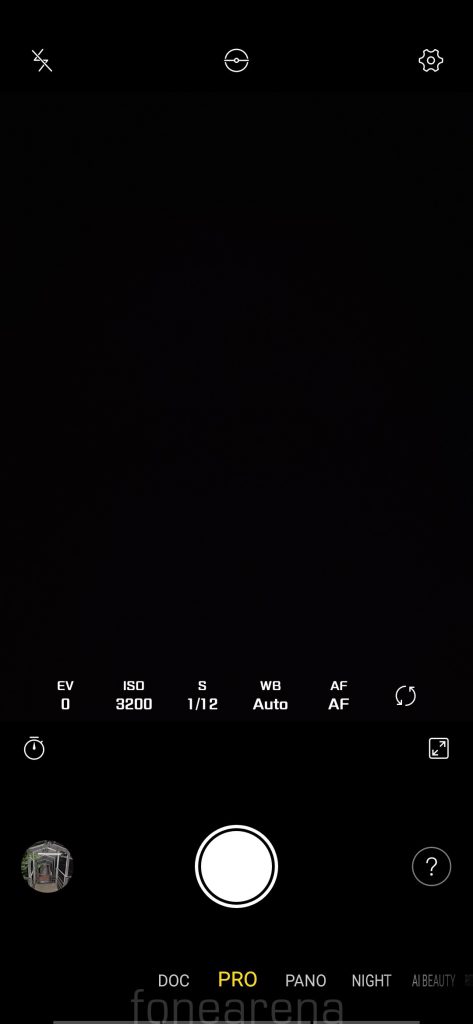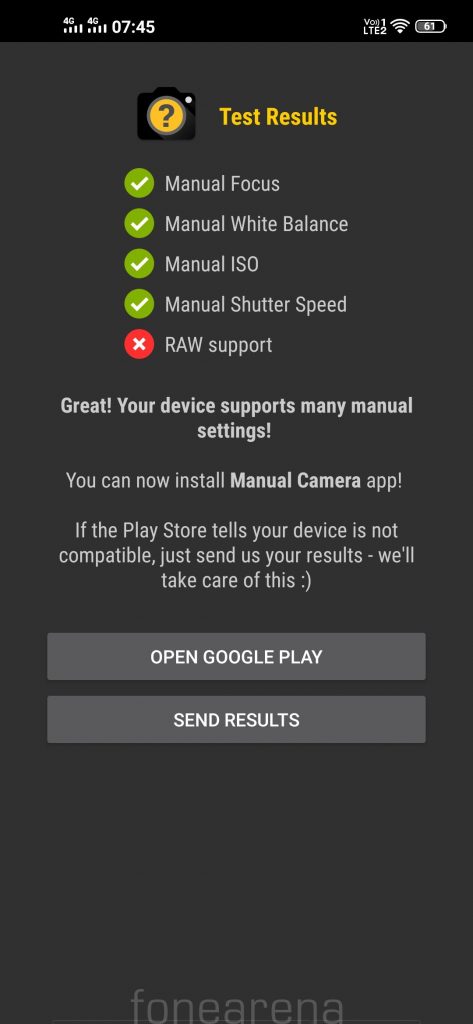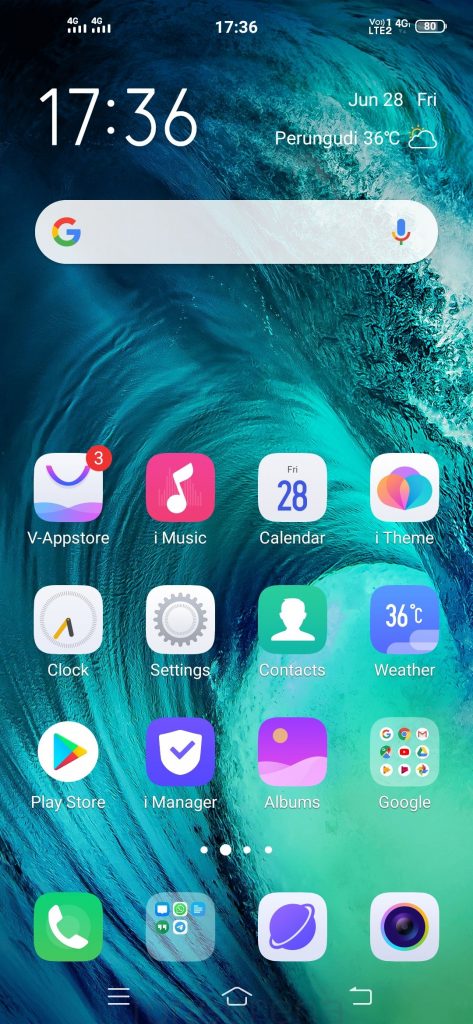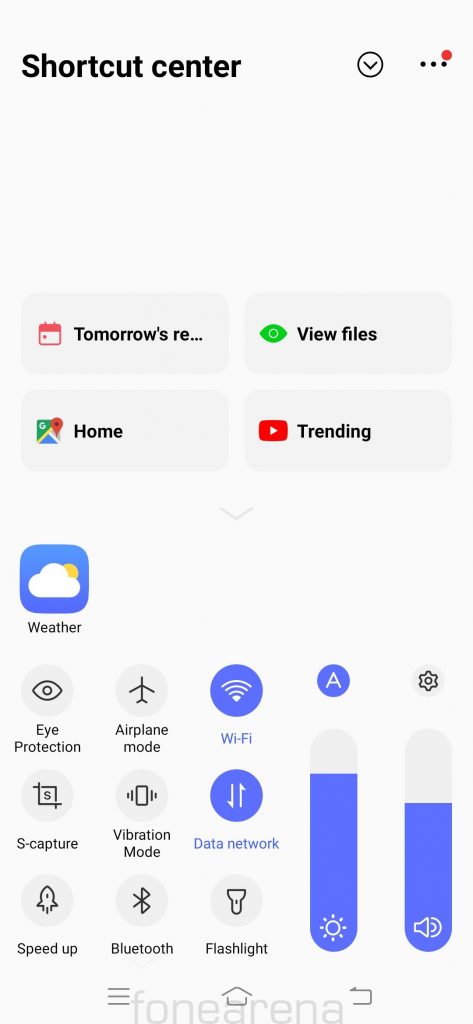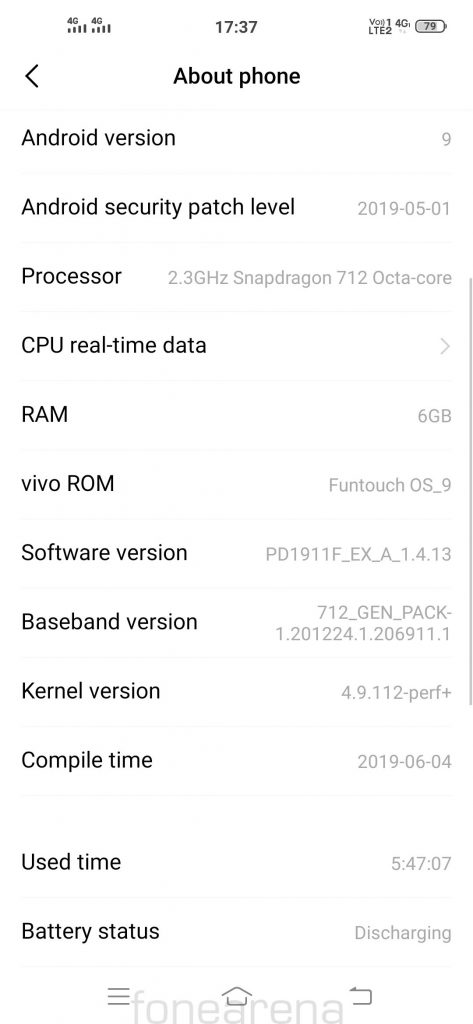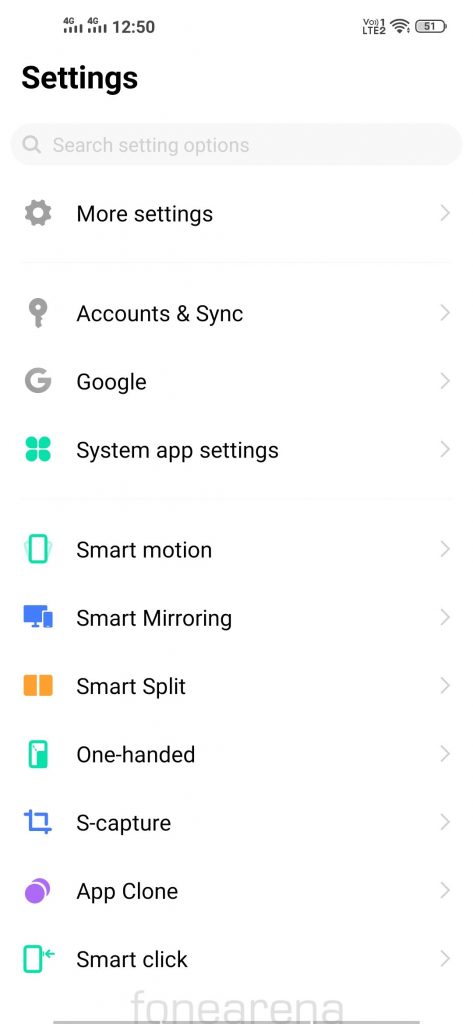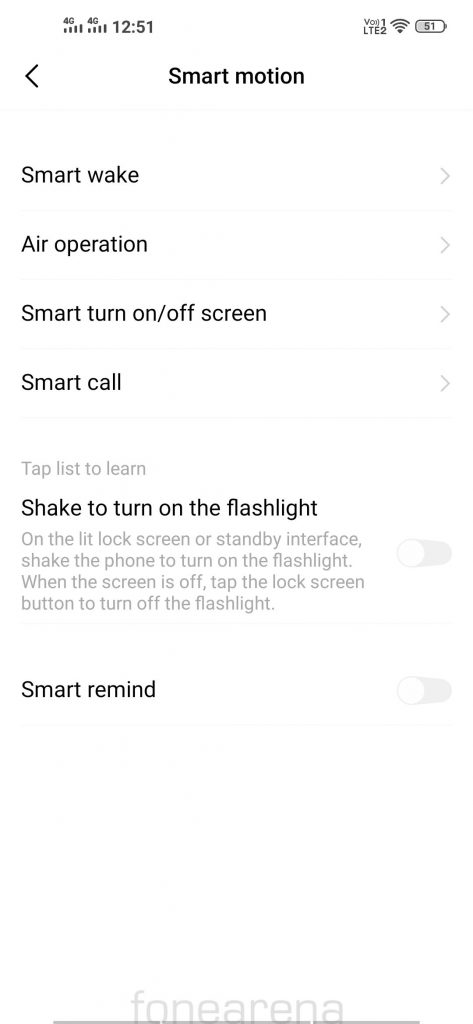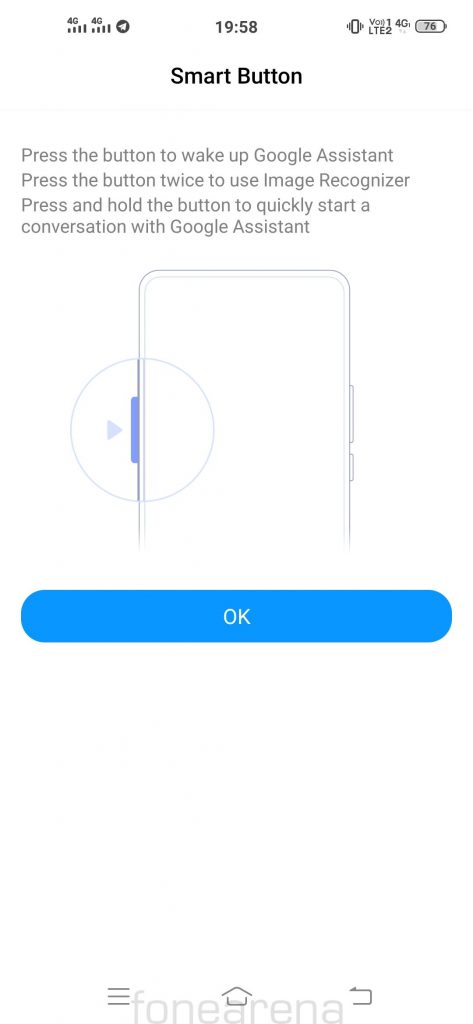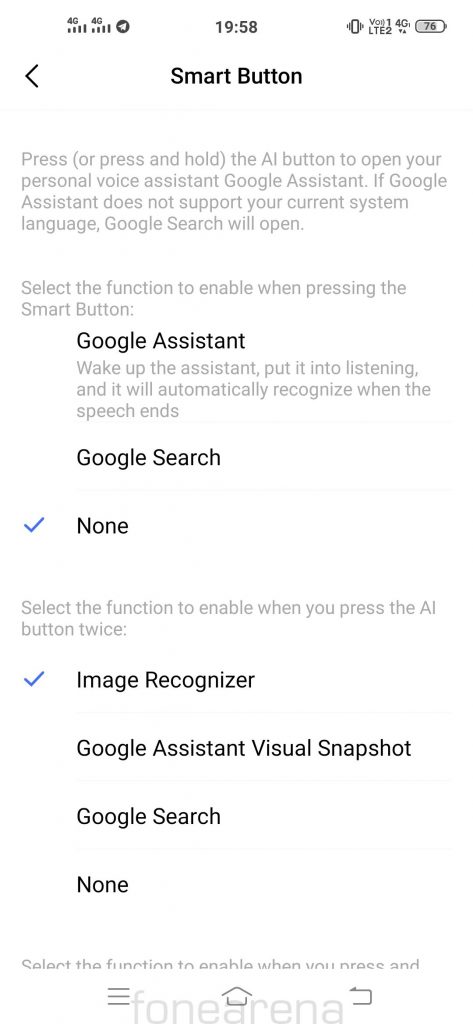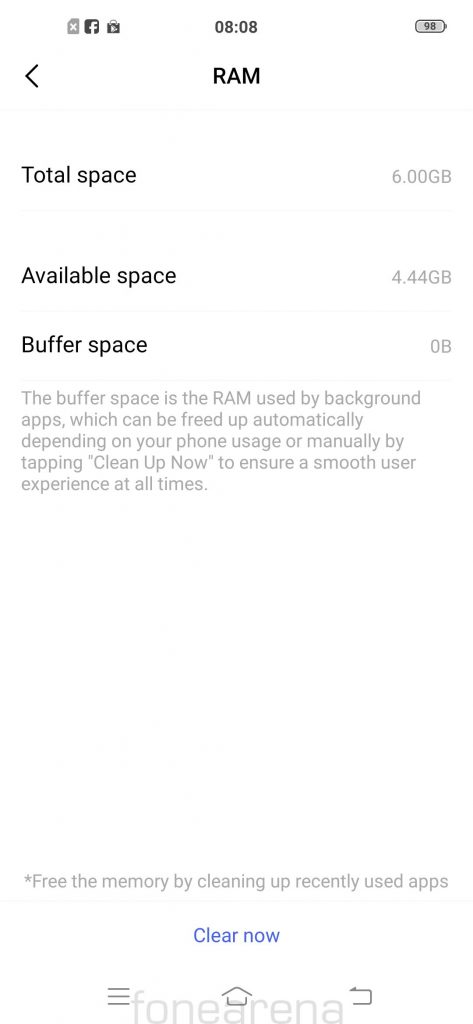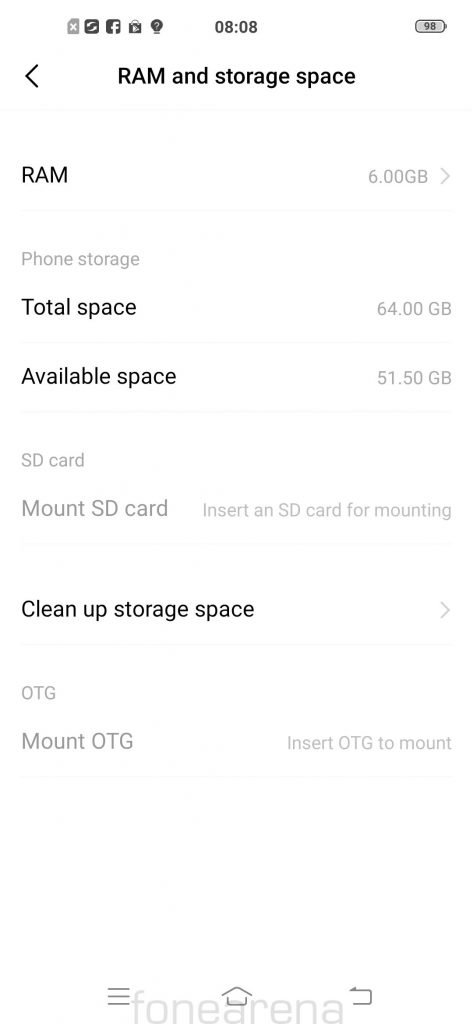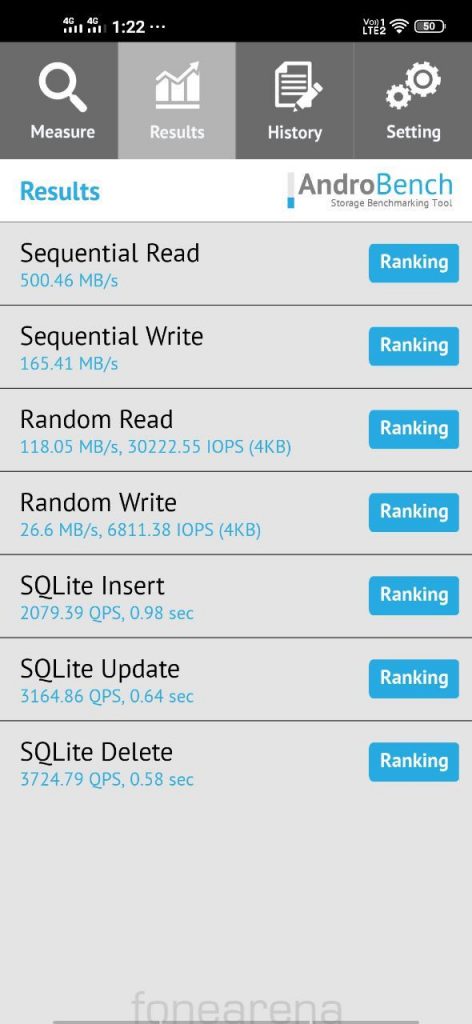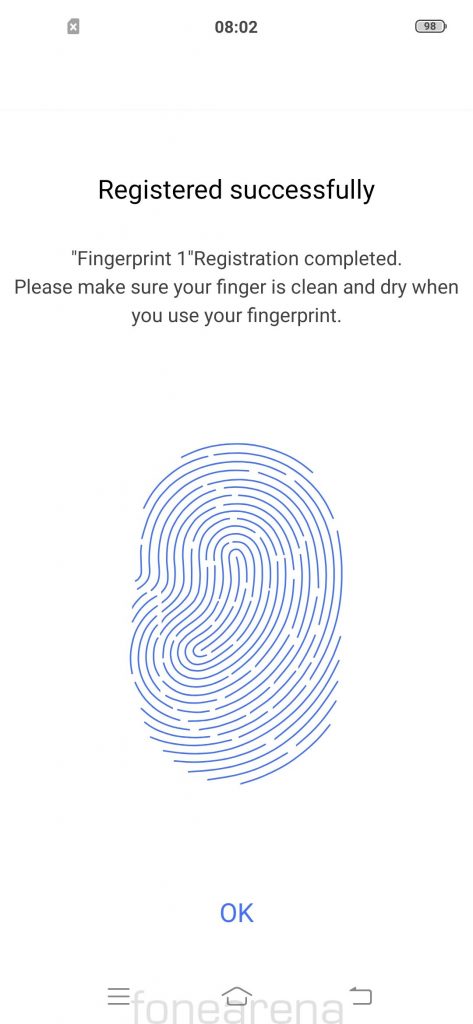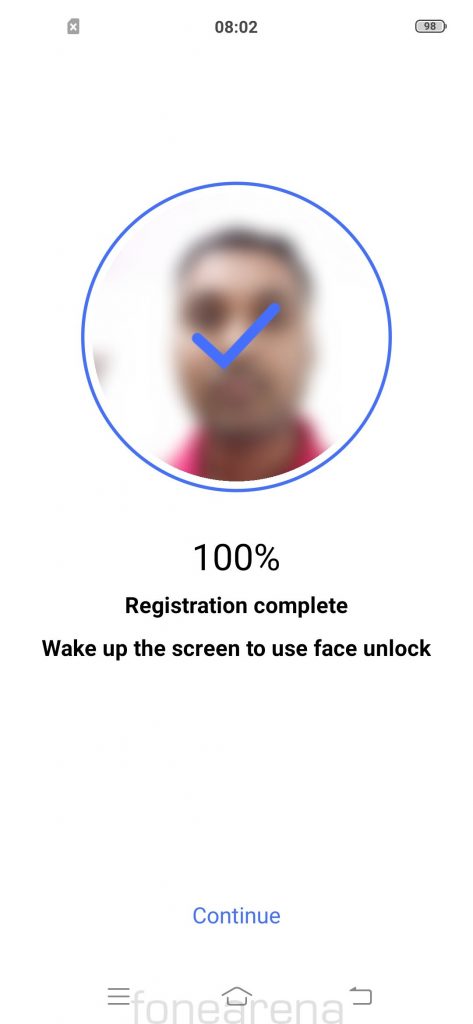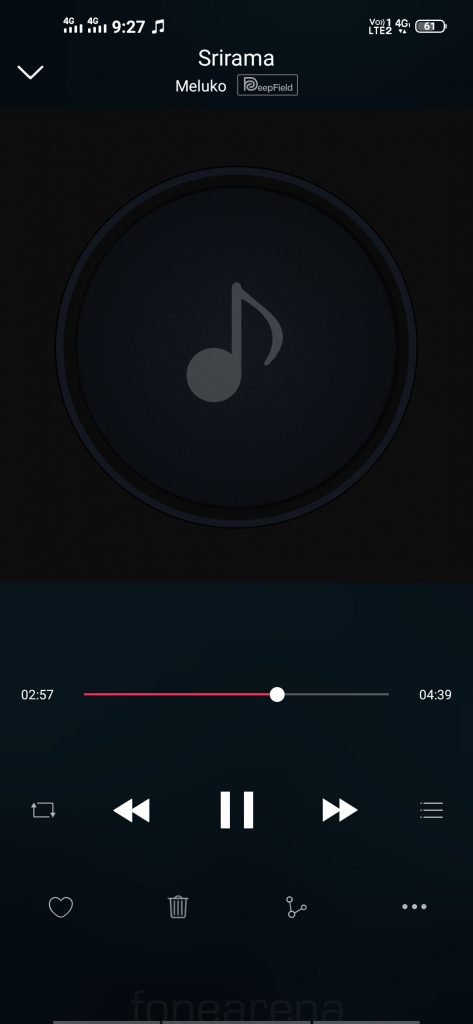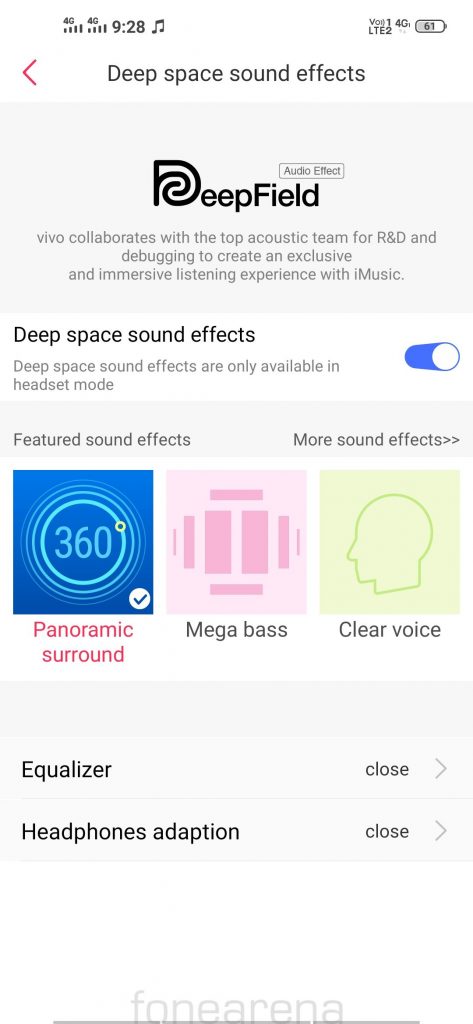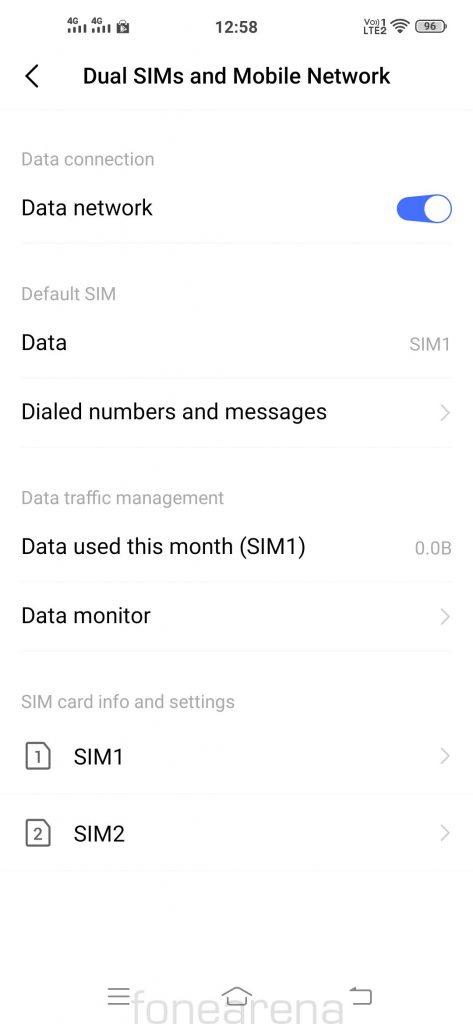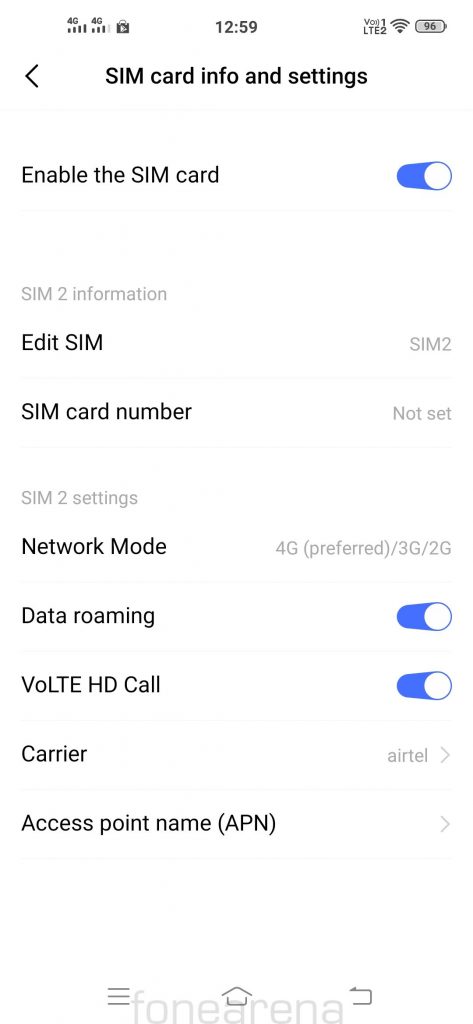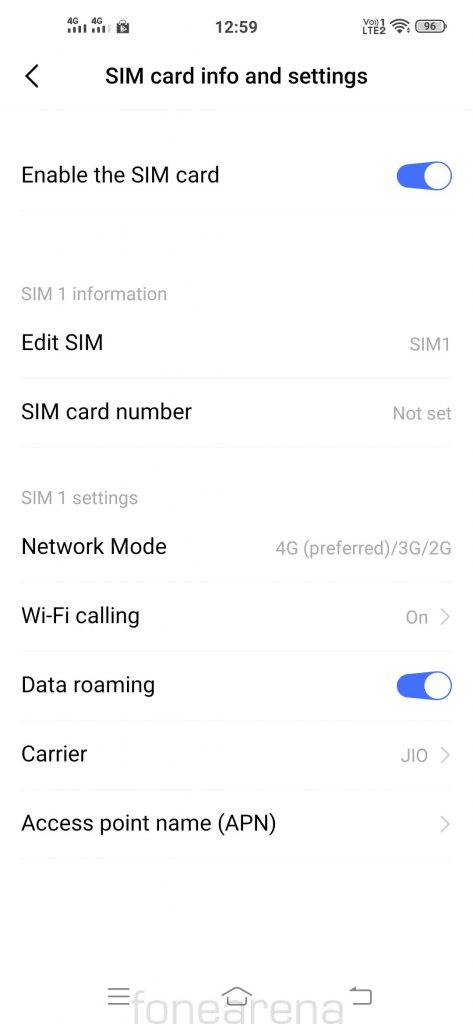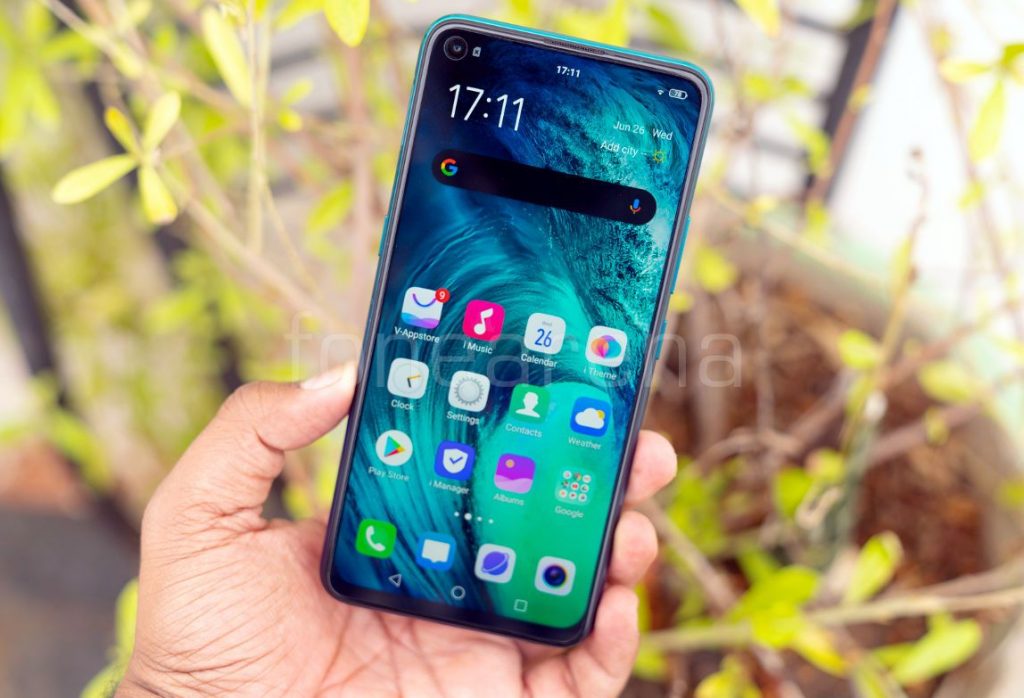
Vivo launched the Z1Pro, the company’s first smartphone with a punch-hole display in India. Even though it was introduced as Z5x in China back in May, the Indian version gets a faster Snapdragon 712 SoC and 32-megapixel in-screen camera. Specifications look good on paper, is the phone good for the price? Let us find out.
Unboxing
We recently unboxed the smartphone. Check out the videos below.
Box Contents
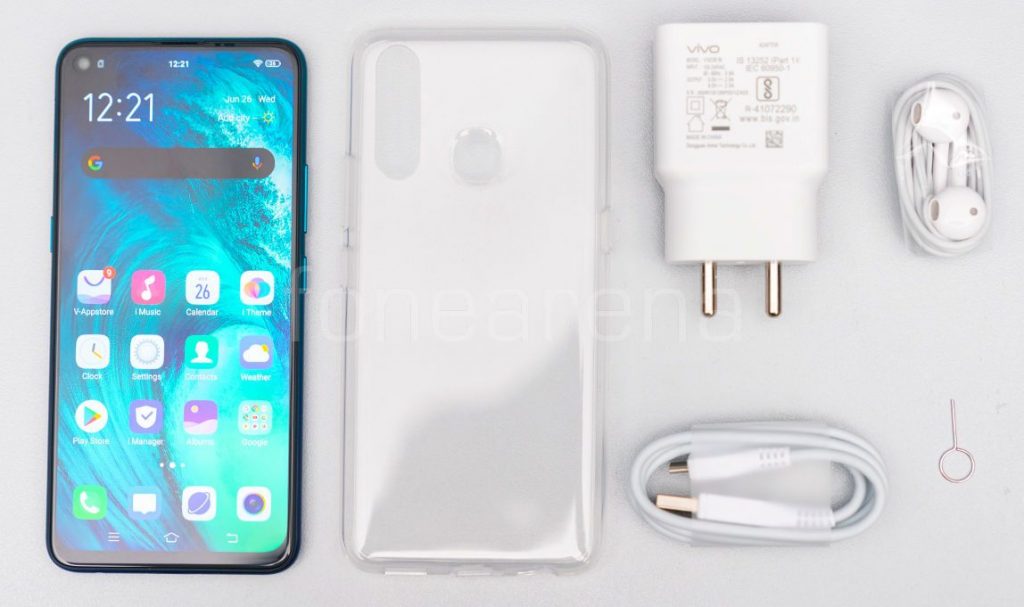
- Vivo Z1Pro 6GB RAM with 64GB storage version in Sonic Blue color
- 2-pin fast charger (5V-2A / 9V-2A)
- Micro USB Cable
- Earphones with microphone
- SIM Ejector tool
- Clear protective case
- User manual and warranty information
Display, Hardware and Design
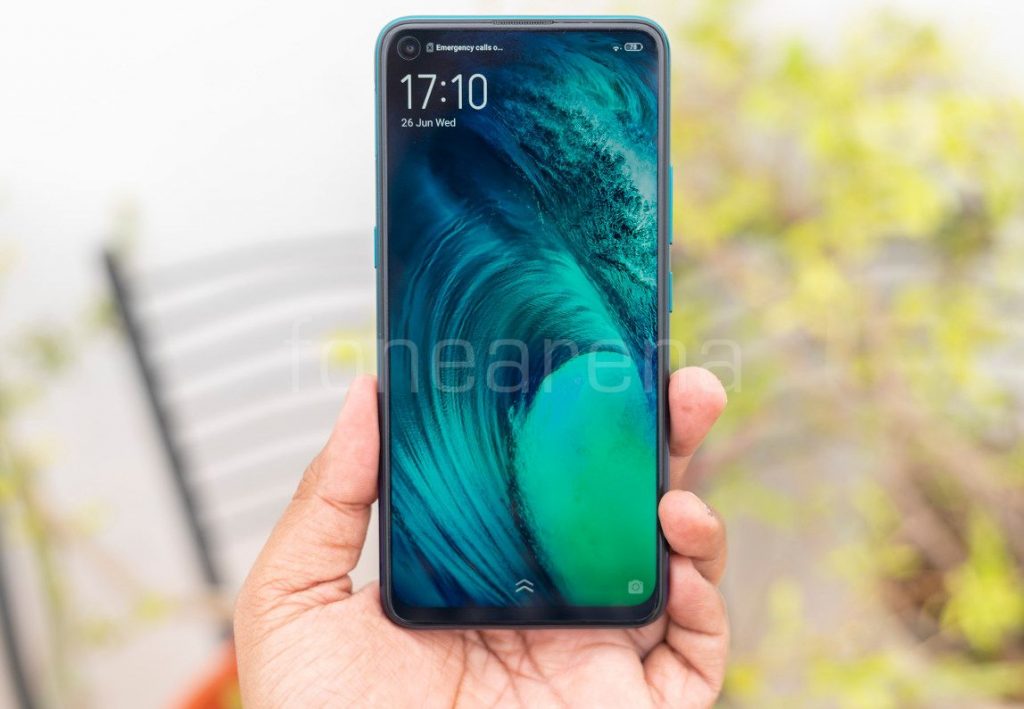
The phone packs a large 6.53-inch 19.5:9 In-cell LCD 2.5D curved glass screen with gentle rounded corners. It is a Full HD+ screen with a pixel resolution of 2340 × 1080 pixels and a pixel density of about 394 PPI. It has 1.76mm slim side bezels, so it is easy to hold. The display is bright and the colors are vibrant, and sunlight legibility is good as well. Overall the display is gorgeous to look, thanks to the no-notch design and minimal bezels on the sides and the bottom. The company doesn’t say if this uses any hardened glass protection.
You can adjust the display color temperature from the display settings, and there is also eye protection option that cuts out the blue light emitted from the smartphone that causes strain to eyes and also affect the sleeping cycle. There is also a dark mode option that changes the phone UI and UI of the built-in apps and some third-party apps to dark, but this looks weird in apps like WhatsApp and Instagram.
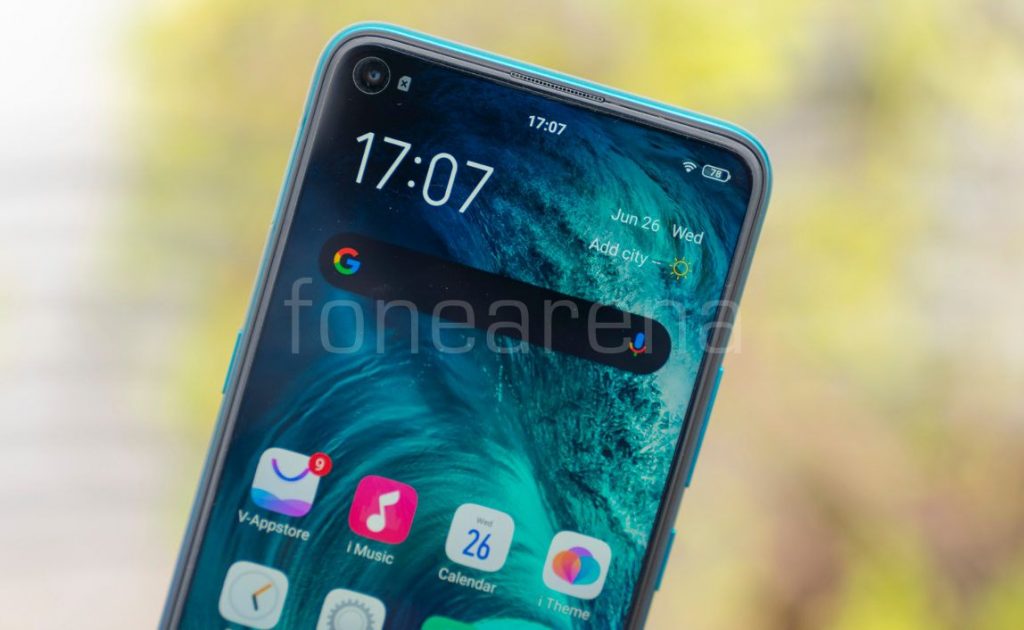
Above the display there is an earpiece on the top edge. There is a 32-megapixel in-display / in-screen camera with f/2.0 aperture inside a 4.59mm small camera hole. At the launch the company said that it has used Super Black technology to blend the camera with the screen. The proximity sensor is present on the top bezel on the right side of the screen, next to the earpiece. The ambient light sensor is hidden under the screen. It also has a gyroscope and a magnetic sensor, otherwise known as a magnetometer. The phone doesn’t have a notification LED.
Coming to the button placements and slots, the power button and the volume rockers are present on the right side. On the left there is a dedicated dual SIM and microSD slots, arranged in a single tray. There is also a smart button on the left to launch the Google Assistant easily. On the bottom there is a 3.5mm audio jack, microphone, micro USB port and the loudspeaker grill.
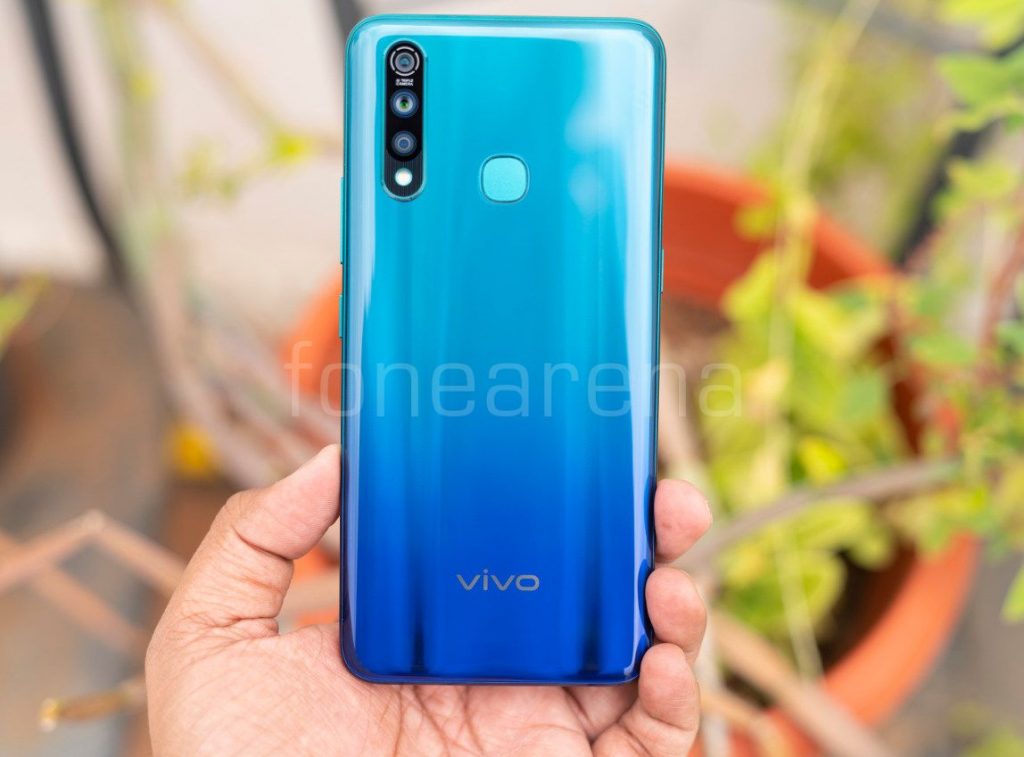
On the back there is a 16-megapixel primary camera with f/1.78 aperture, Sony IMX499 sensor, 8-megapixel 120° wide-angle camera with f/2.2 aperture and a 2-megapixel camera with f/2.4 aperture. The LED flash is present below the cameras, and the fingerprint sensor is present next to it.
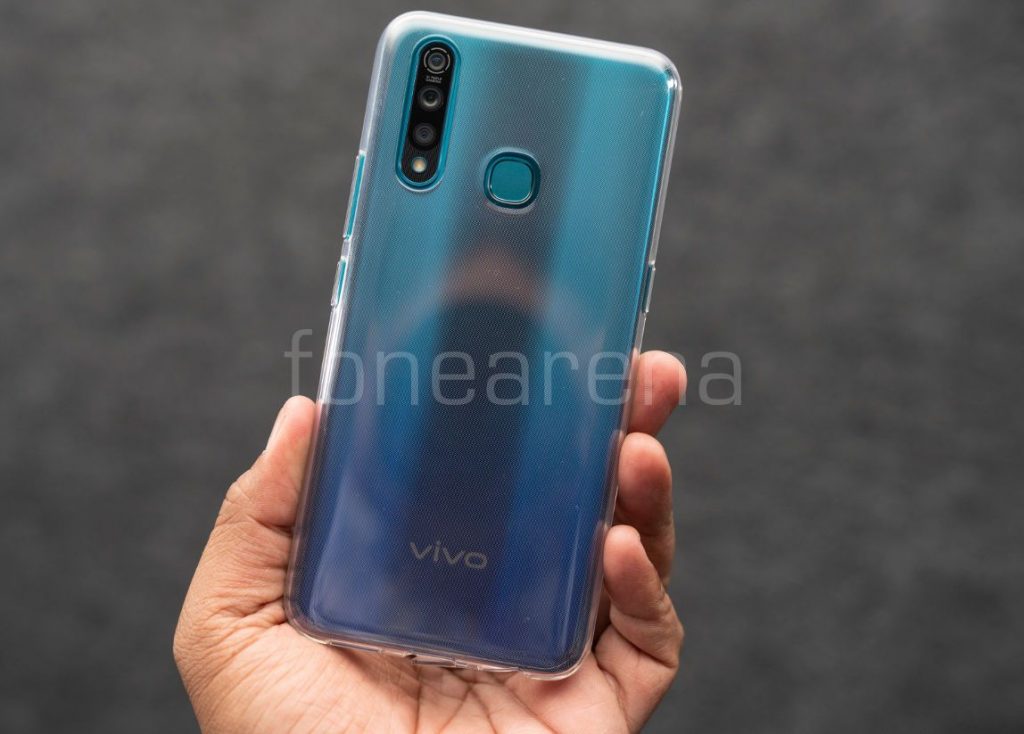
The back cover has a glossy finish with gradient look. It looks premium and feels solid in hand, but it can attract fingerprints easily. The location of the camera strip has a small bump, but it is minimal and is not noticeable when you use the case. The clear protective case which comes bundled with the phone offers good protection. We have the Sonic Blue color version, and the phone also comes in Sonic Black and Mirror Black versions.
The phone has 162.39 x 77.33 x 8.85mm dimensions, which is good for a phone with a 6.53-inch large screen. Vivo says that it has 90.77% screen-to-body ratio, but it is around 83% in reality. It is a bit heavy at 204 grams, mainly due to the huge 5000mAh battery under the hood. The phone might feel bulky since most phones weigh around 170 grams, but this is 201 grams since it has a huge 5000mAh battery.
Camera
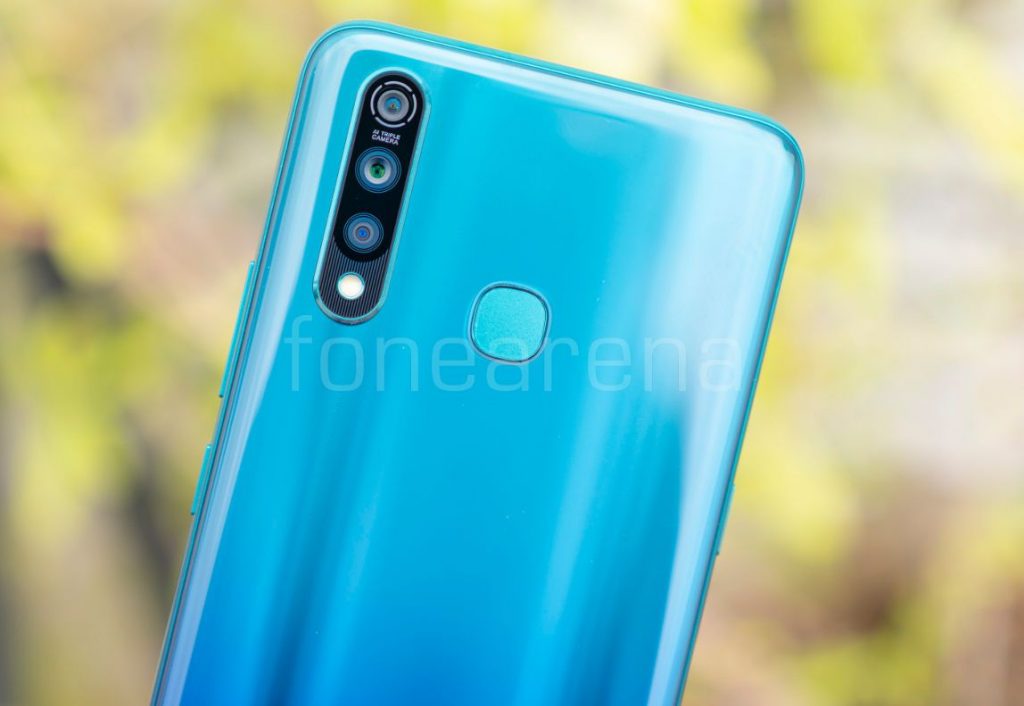
The Z1Pro packs a 16-megapixel primary rear camera with Sony IMX499 sensor, f/1.78 aperture, 8-megapixel 120° wide-angle camera with f/2.2 aperture and 2-megapixel camera with f/2.4 aperture to capture depth information in portrait shots. It has a 32-megapixel front camera with f/2.0 aperture.
The camera UI is simple with toggles for flash, HDR, Portrait lighting and live photos on the top, along with settings button that lets you switch aspect ratio, add watermark, Geo location, framing lines, AI portrait framing and AI scene identification. On the bottom there is an option for image recognizer, timer, effects, portrait mode and switch to wide-angle camera. Below that there is an image preview button, shutter key and front and rear camera toggle. Below that there is an option to switch camera modes that include DOC (Documents), Pro (To manually adjust Exposure, ISO (up to 3200), Shutter speed (1/12000 to 32 seconds), Panorama, Night, AI Beauty, Photo, Video, FUN Video and AR Stickers) The phone also supports Camera2 API by default so Google Camera ports for advanced editing, but it doesn’t support RAW capture.
Coming to the image quality, day light shots are good, and it is recommended to enable HDR option since it is out. The camera can focus quickly. Macro shots are good, and the wide-angle camera is useful, but the image quality is not the best since it uses a smaller 8-megapixel sensor. It offers 108° image capture after accounting for distortion, even though the phone 120° lens. Images are automatically optimized according, which is good. It uses the 2MP camera to blur the background for portrait shots, which is good in terms of edge detection. Low-light images are decent, but it has noise, and the night mode is better.
The 32-megapixel front camera is pretty good and sharp. Front camera portrait uses software to blur the background, which is decent. It also has HDR support and AI beautification with a lot of customizable options. Overall, the camera is decent, and the front camera is impressive for the price.
Check out some camera samples below (Click the image to view the full resolution sample).

It can record videos at 4k resolution at up to 30 fps and 1080p videos at up to 60 fps. Video quality is good. There is EIS, but it only works for 1080p videos. It also has 720p slow-mo and time-lapse options in the video settings. Check out the video sample below. Also, check out the complete set of camera samples here.
Software, UI and Apps
Coming to the software, the phone runs on Android 9.0 (Pie) with Android security patch for June 2019 and Funtouch OS 9 on top. Vivo keeps pushing updates frequently improving things, which is good. The company did not say when the phone will get Android Q update. Compared to Funtouch OS 4.5 in older phones the Funtouch 9.0 comes with a new UI design and color combination. It also finally brings Search function in the Settings. It still has iPhone-like gestures and Jovi Smart Scene assistant when you swipe to the left showing several cards. You still need to drag from the bottom to access the panel for toggle. You can disable the navigation buttons and use gestures.
It has Motorbike mode that can auto reject calls and mute notifications, has smart wake, smart turn on / off screen, on-handed mode, app clone and a lot of features. The updated Game cube supports more functions, such as Prevent accidental touches and Game picture-in-picture and more.
The AI or Smart button lets you wake up Google Assistant, you can customize it to launch the Google Search instead and double press can be configured to launch Image Recognizer, Google Assistant Visual Snapshot or Google Search. You can also disable the button completely, but you can’t configure it to launch other functions or apps.
Out of 6GB of RAM about 5.6GB is usable, out of which 4.4GB is free when the default apps are running in the background. Out of 64GB of UFS storage, 51.5GB is free out of the box. Even though the company doesn’t mention if its eMMC or UFS storage. We got about 500Mbps sequential read speed on Android Bench, so it is definitely UFS, and not eMMC, but it might be UFS 2.0 compared to UFS 2.1 in the Chinese version.
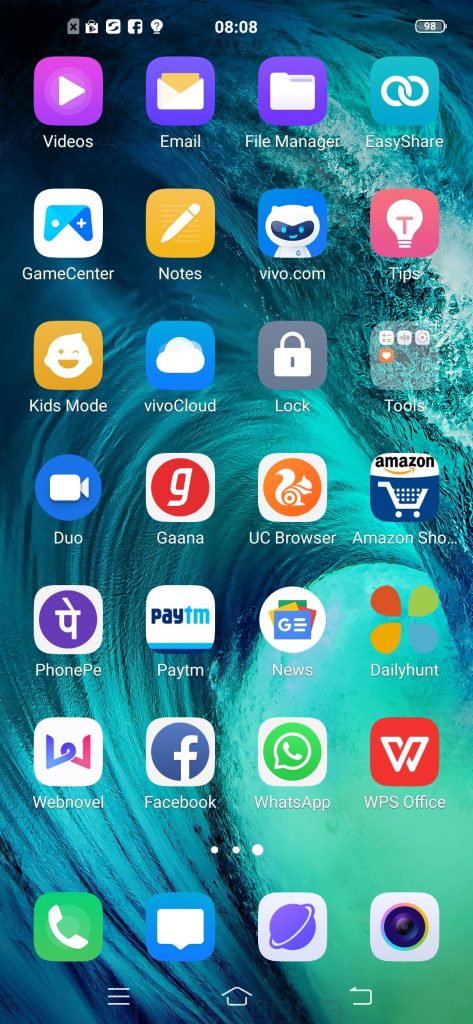
Apart from the usual set of utility and Google apps, it comes pre-loaded with a lot of apps such as Facebook, WhatsApp, Gaana, UC Browser, Amazon, Dailyhunt, PhonePe and Paytm. These apps can be uninstalled, but they come back after reset.
Fingerprint Sensor and Face unlock
The phone has rear-mounted fingerprint sensor which immediately unlocks phone just by keeping your finger on the sensor. The phone also has face unlock that can unlock the phone in seconds by scanning 1024 facial points, but it is not as secure as fingerprint since it can be unlocked with a photo. It also doesn’t work if you use sunglasses or hats.
Music Player and Multimedia
The default Music Player also has equalizer and DeepField sound effects. It doesn’t have FM Radio support. Audio through the speaker is good and it is loud, but it distorts a bit in full volume. Since the speaker is present on the bottom, audio doesn’t get muffled when the phone is on a flat surface. Audio through bundled earphones is good as well. This has Widevine L1 so that you can play HD content on Amazon Prime Video, Netflix and other streaming apps. Our review unit lacked it, but Vivo confirmed that the retail units will come with Widevine L1 support.
Connectivity
It has the usual set of connectivity features such as 4G, Wi-Fi 802.11 ac (2.4 + 5GHz), Bluetooth 5, GPS + GLONASS, but doesn’t have NFC support. It also has USB OTG support that lets you connect external drives. It also has Voice-over-LTE (VoLTE) support for Reliance Jio, Airtel and others and supports Dual 4G VoLTE that lets you use 4G on both the SIMs.
The dialer and messaging UI are similar to other Vivo smartphones. With the latest Funtouch OS update, Messages supports identifying malicious websites, risky links and other information. Since this is a dual SIM phone, you get the option to select either SIMs when calling or sending a text message. We did not face any call drops and the earpiece volume is good, even though it is present on the top edge.
Performance and Benchmarks
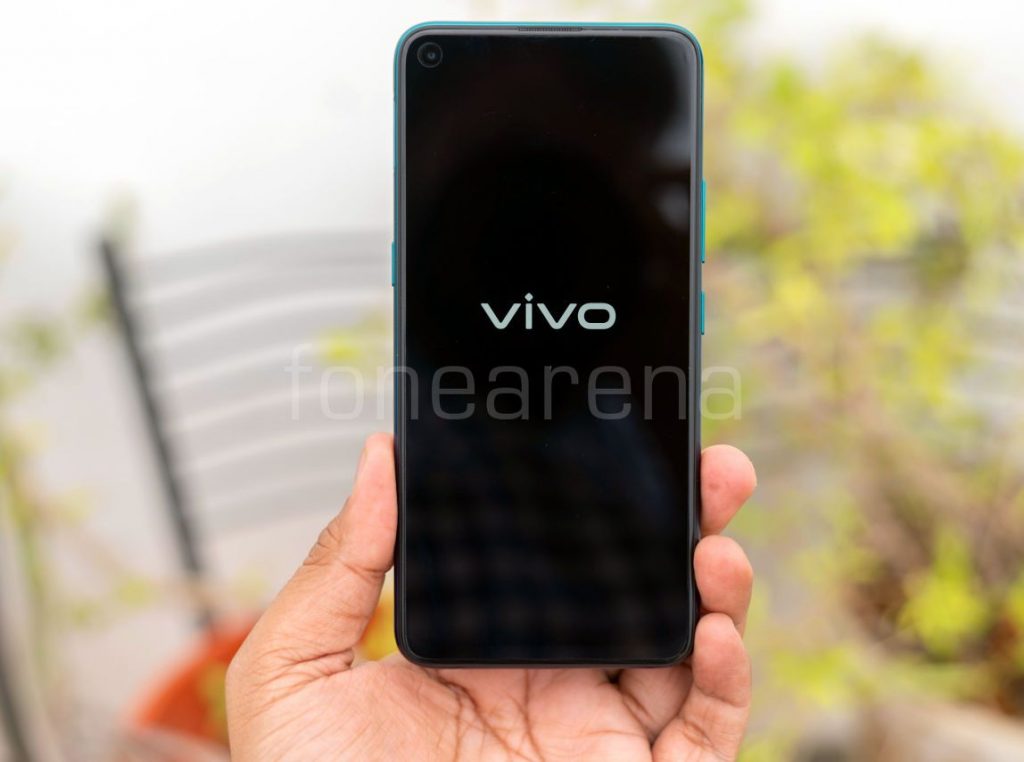
Coming to the performance, the phone is powered by an Octa-Core Qualcomm Snapdragon 712 64-bit 10nm Mobile Platform that has two Cortex A75-based Kryo 360 CPUs clocked at 2.3GHz per core and other six Cortex A55 Kryo 360 CPUs are clocked at 1.7GHz per core, comes with Adreno 616 GPU and 6GB LPDDR4x RAM. Check out the synthetic benchmark scores below.
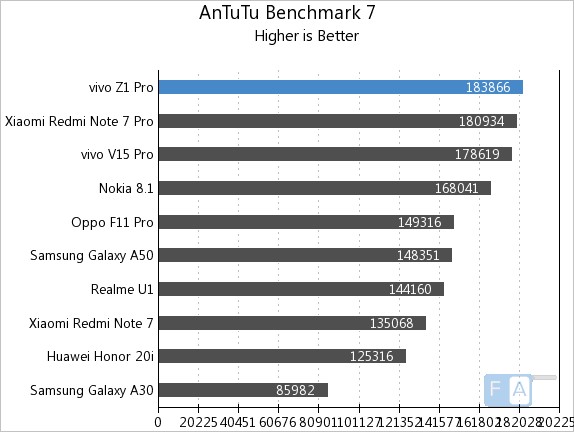
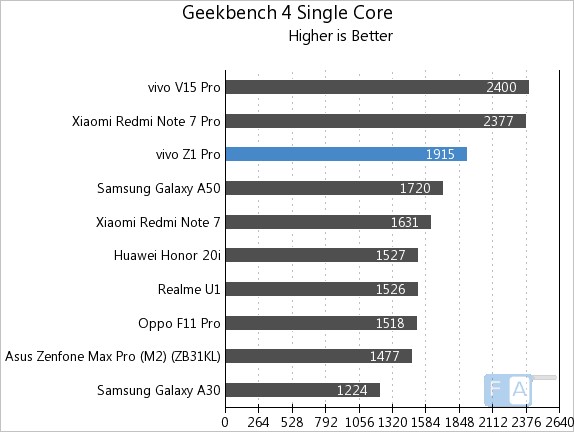
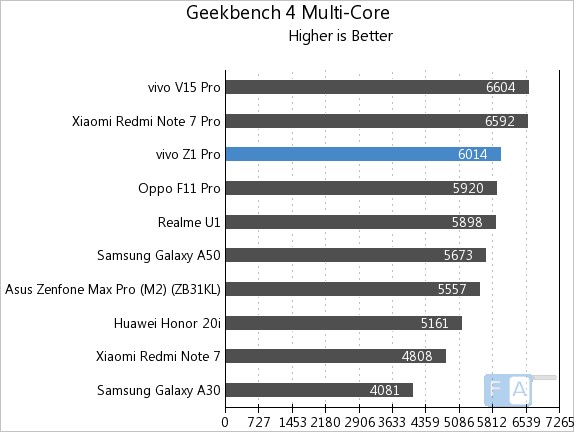

We did face occasional frame drops in graphic-intensive games, but most games were fine. Similar to most phones, it gets a bit warm on intensive gaming and 4G data use, but it doesn’t too hot.
Vivo says that the phone comes with Multi Turbo which features Center Turbo that promises 78% improvement in anti frame rate drop while playing games, AI Turbo that promises 20% better experience in commonly used apps, Cooling Turbo that promises 1 to 1.5°C improvement in heating or temperature and Game Turbo for smooth gaming experience. The Ultra Game Mode offers several features such as Voice Changer, 4D Vibrations with real-time recognition of the game scene and vibrates the phone accordingly, DND Mode, Game Countdown and more. That said, check out the gaming review.
Battery life
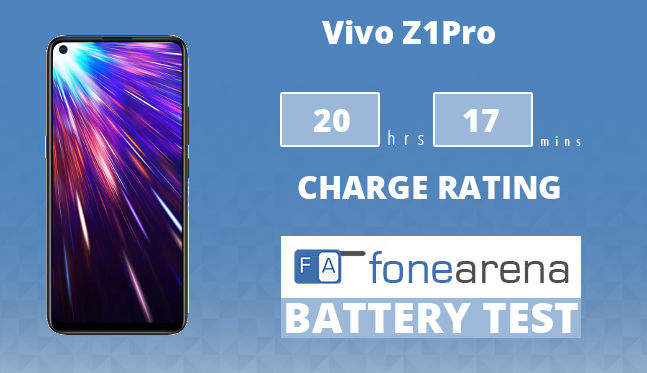
Coming to the battery life the 5000mAh battery offers lasts for a whole day even with heavy use and with average use it lasts for two days. In addition to the default normal mode, there is a low power mode that lowers the CPU and GPU freqency, screen brightness and more to improve the battery life, and there is also a Super Power-saving mode that only enables contacts, phone, messages and clock. Even in normal mode, the phone kills some background apps that consumes more power, so you have to change the option to allow the app to continue running in the background.
It achieved One Charge Rating of 20 hours and 17 minutes in our battery test, which is brilliant. Since the phone has support for 18W Dual Engine Fast Charging, it takes about 2 hours to charge it from 0 to 100%, and 0 to 50% takes 53 minutes. It also supports reverse charging that lets you charge other devices with the Z1Pro with an USB OTG cable. Even though the phone comes with support for fast charging, it has a micro USB port while some phones in the price range come with a USB-C port.
Conclusion
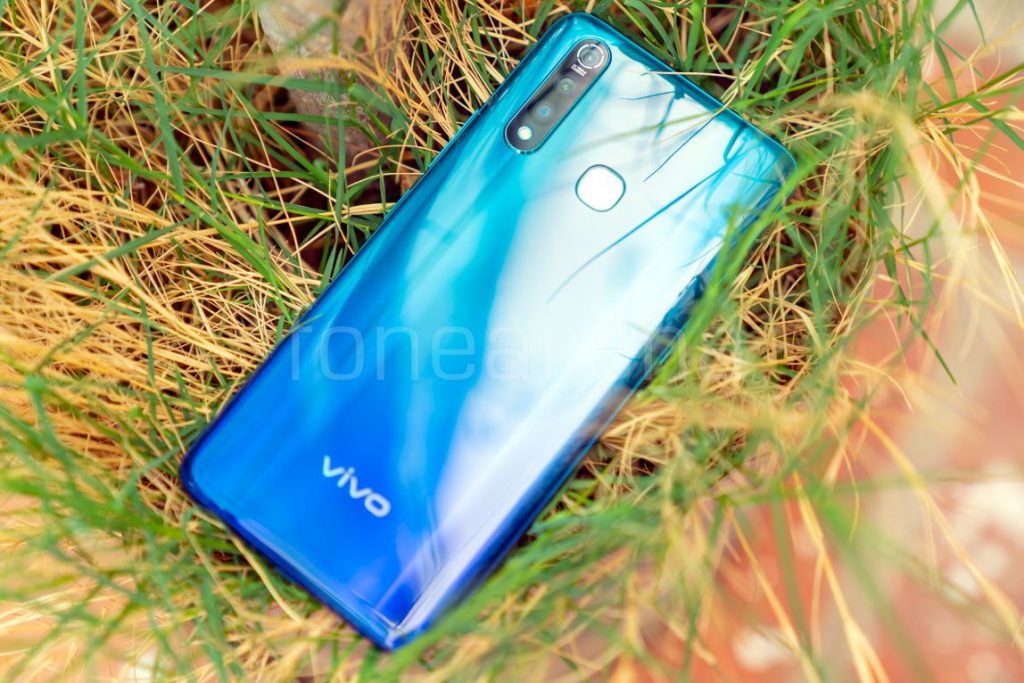
At the starting price of Rs. 14,990, the Vivo Z1Pro is defintely a fully loaded smartphone with a good display with minimal bezels, thanks to punch-hole display with a small camera hole, Snapdragon 712 SoC that offers good performance, 5000mAh battery that offers brilliant battery life and good cameras, espectially the 32-megapixel front camera for clear selfies. However, you have to manage the phone’s UI and live with the micro USB port.
Each and every phone have their own advantages and disadvantages. The Redmi Note 7 Pro and Realme 3 Pro are the direct competitors to the Vivo Z1Pro in the similar price range, but these don’t feature triple rear cameras, 32-megapixel front camera or a huge battery. There is also the Samsung Galaxy M30 features triple rear cameas and a 5000mAh battery, but the SoC is not powerful.
The Vivo Z1Pro will be available from Flipkart and vivo India eStore starting from July 11th.
Pros
- Good display with minimal bezels
- Brilliant battery life
- Good performance
- Dedicated dual SIM and microSD card slots
Cons
- UI might not be preferred by everyone
- Micro USB port
- Might be huge and heavy for some
Photography by Siraj

